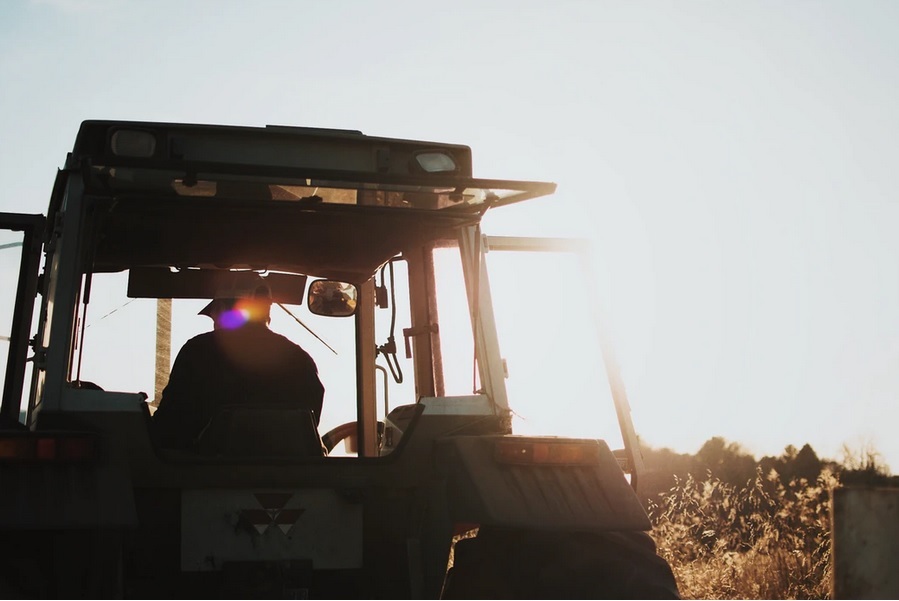The COVID-19 pandemic has changed just about the whole world—except, it seems, farmers’ struggles to keep their operations fully staffed.
Even with the state unemployment rate at 16.3% as of July 10, harvest employees have been hard to find.
“We’ve got the same manpower, the same people, in our labor force,” said Carlos Gutierrez, a farm labor contractor based in Tulare County who primarily handles citrus. “I have not seen an inflation of people coming from other places. As a matter of fact, even when the unemployment rates are really high, we’re still shorthanded.”
Fresno County farmer Joe Marthedal said he’s in the same situation, and it encouraged him to resort to mechanical means.
“We actually just completed our blueberry crop, and that is where we have our biggest, most intense labor need,” said Marthedal, a third-generation farmer who grows blueberries, almonds and grapes south of Fresno. “Labor was very tight this year. It is a perpetual problem.”
As a result, he made greater use of a mechanical harvester, but noted it can’t tell the difference between ripe and unripe berries.
“Blueberries grow in clusters,” Marthedal said. “They don’t ripen uniformly, and we have to at least loosen the clusters before we go in with machines. Because of tight labor this year and poor market conditions, we actually did more machine harvesting than we’ve ever done before.”
But, he said, his packout “is significantly less with machine-harvested fruit than with hand-harvested fruit.”
In Marysville, peach grower Kulwant Johl started harvesting early varieties of his cling peaches late last week, with many of his usual employees in attendance. Some people opted out because of health concerns, he said—and the farm drew no interest from people laid off because of the pandemic.
“Not even a single person came by,” Johl said.
If he’s still shorthanded as peach harvest accelerates, he said, he’ll call a farm labor contractor. And if that still doesn’t cover everything?
“We will ask the cannery to let us pick by machine,” he said.
Mechanical canning-peach harvest involves shaking peaches loose from the tree into a mechanical grader. The machines need a crew of six, as opposed to a hand-harvest crew of 20. Mechanical harvest has to be done at night, Johl explained, when temperatures are lower and peaches are firmer.
One exception to the employee-shortage trend can be found in Tulare County, where dairy farmer Landon Fernandes needed to fill two positions when shelter-in-place orders first came down.
“I filled those with two folks that came by looking for work as a result of job loss from this pandemic,” Fernandes said. “I felt like I was doing my part to help someone out in the community, by hiring somebody that was struggling because of this pandemic.”
At first, Fernandes said he worried he might become understaffed as the pandemic took hold.
“We have to get cows milked at four locations, 24 hours a day,” he said. “There’s only so many of me, and I can’t do it all.”
But he got a surprise: Within the first week or so of shelter-in-place, “I started having three, four, five employees a day come by looking for work,” Fernandes said. “That was ongoing for the first month of the pandemic.”
Many of the job seekers had never worked on a dairy before—and to Fernandes, that’s not an automatic disqualifier: He’s looking for people with a strong work ethic and sense of teamwork.
“I’ve always had the philosophy that I can train somebody and teach somebody how to do the job that we need done,” Fernandes said, adding that he’s hired people who had no prior dairy experience, “and they are now very skilled in their current roles here.”
Since the pandemic’s early days, however, the wave of job-seekers has receded, he said, noting it’s taken him a couple of weeks to fill open jobs.
“I think we went over seven days without having a single person stop by looking for job openings,” Fernandes said late last week. “I had to resort to a few different resources to put the word out that I have a job opening.”
He attributed the slowdown to a reopening economy and extended unemployment benefits.
For those working to keep food flowing to American dinner tables, attention to safety on and off the clock has become a prime concern.
The California Farm Bureau Federation and the Farm Employers Labor Service—an affiliate of CFBF—have launched a second round of public-service announcements with COVID-19 safety messages on Spanish-language radio stations.
Bryan Little, director of employment policy at CFBF and chief operating officer of FELS, said the first round of ads emphasized measures such as face masks, social distancing and hand washing.
“This campaign now is aimed at reinforcing the need to be doing those things when not at work, too,” Little said. “You need to be social distancing and protecting your family.”
Little addressed an online meeting of the state Board of Food and Agriculture last week, describing FELS efforts to keep farmers and ranchers informed. He said his job is to “try to distill some of that information down to a level that people can assimilate and act on it.”
FELS maintains a page of resources and information for agricultural employers at www.fels.net.
CFBF and FELS also have launched a follow-up survey to gauge the impact of COVID-19 on agricultural operations and their employees and managers. To take the anonymous survey, follow the link at www.cfbf.com/industry-resource/.
(Kevin Hecteman is an assistant editor of Ag Alert. He may be contacted at [email protected].)
Permission for use is granted, however, credit must be made to the California Farm Bureau Federation when reprinting this item.
Disclaimer: Articles featured on Oregon Report are the creation, responsibility and opinion of the authoring individual or organization which is featured at the top of every article.


